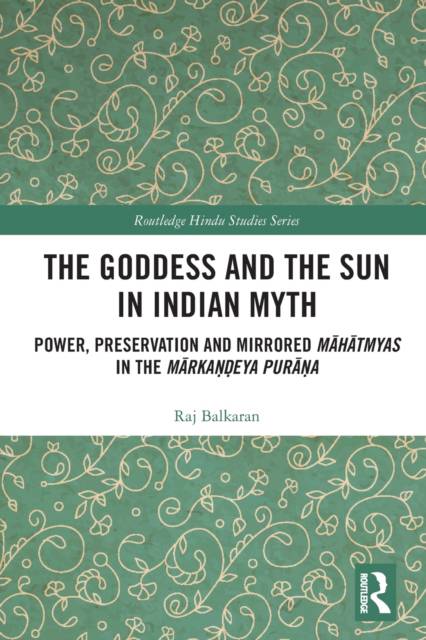
- Retrait gratuit dans votre magasin Club
- 7.000.000 titres dans notre catalogue
- Payer en toute sécurité
- Toujours un magasin près de chez vous
- Retrait gratuit dans votre magasin Club
- 7.000.000 titres dans notre catalogue
- Payer en toute sécurité
- Toujours un magasin près de chez vous
The Goddess and the Sun in Indian Myth
Power, Preservation and Mirrored Māhātmyas in the Mārkaṇḍeya Purāṇa
Raj BalkaranDescription
In analyzing the parallels between myths glorifying the Indian Great Goddess, Durga, and those glorifying the Sun, Surya, found in the Marka¿¿eya Pura¿a, this book argues for an ideological ecosystem at work in the Marka¿¿eya Pura¿a privileging worldly values, of which Indian kings, the Goddess (Devi), the Sun (Surya), Manu and Marka¿¿eya himself are paragons.
This book features a salient discovery in Sanskrit narrative text: just as the Marka¿¿eya Pura¿a houses the Devi Mahatmya glorifying the supremacy of the Indian Great Goddess, Durga, it also houses a Surya Mahatmya, glorifying the supremacy of the Sun, Surya, in much the same manner. This book argues that these mahatmyas were meaningfully and purposefully positioned in the Marka¿¿eya Pura¿a, while previous scholarship has considered this haphazard interpolation for sectarian aims. The book demonstrates that deliberate compositional strategies make up the Saura-Sakta symbiosis found in these mirrored mahatmyas. Moreover, the author explores what he calls the "dharmic double helix" of Brahmanism, most explicitly articulated by the structural opposition between prav¿tti (worldly) and niv¿tti (other-worldy) dharmas.
As the first narrative study of the Surya Mahatmya, along with the first study of the Marka¿¿eya Pura¿a (or any Pura¿a), as a narrative whole, this book will be of interest to academics in the field of Religion, Hindu Studies, South Asian Studies, Goddess Studies, Narrative Theory and Comparative Mythology.
Spécifications
Parties prenantes
- Auteur(s) :
- Editeur:
Contenu
- Nombre de pages :
- 172
- Langue:
- Anglais
- Collection :
Caractéristiques
- EAN:
- 9781032400174
- Date de parution :
- 29-08-22
- Format:
- Livre broché
- Format numérique:
- Trade paperback (VS)
- Dimensions :
- 155 mm x 236 mm
- Poids :
- 249 g







